
For centuries Himalayan practitioners have used meditation to quiet the mind, open the heart, calm the nervous system, and increase focus. Mindfulness meditation offers a refuge from the world and an opportunity to engage more consciously.
Whether you’re a beginner, a dabbler, or a skilled meditator seeking the company of others, join expert teachers in a 45-minute weekly in-person program. Each session is inspired by a different work of art from the Rubin Museum’s collection. Designed to fit into your lunch break, the program includes an opening talk, a 20-minute sitting session, and a closing discussion. Chairs will be provided.
This week’s in-person meditation session will be led by Swami Chidananda, and the theme for this month is Interconnectedness
About the Teacher
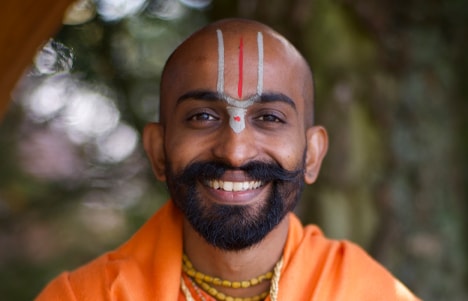
Swami Chidananda is a spiritual educator and monk initiated in the Vedic Hari Bhakta lineage, holding the distinguished title of Swami.
Through the study of scriptures such as the Bhagavad Gita and the Yoga Sutras of Patanjali, Swami has gained a deep understanding of the science of yoga and has devoted his life to helping others on their inner journey.
Before entering the spiritual path, he had a successful career as an investment banker and entrepreneur. Now, he uses his experiences to convey the ancient yoga systems in a relatable and accessible way for those seeking to reconcile Western and Eastern philosophies.
Additional information about Swami can be found by exploring his social media page on Instagram @swami_chidananda, or by listening to his podcast, The Path of a Swami.
This program is presented in partnership with Sharon Salzberg and teachers from the New York Insight Meditation Center, the Interdependence Project, and Parabola Magazine and supported by the Frederick P. Lenz Foundation for American Buddhism.
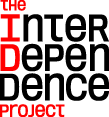
Cocktails, art, and music make a heady mix during K2 Friday Nights, where admission is free every Friday from 6:00 to 10:00 PM.
- Café Serai becomes the K2 Lounge, offering a special drink menu to accompany the evening’s DJ, Snkr Joe.
- Arrive early for 2-for-1 drinks from 6:00 to 7:00 PM.
- Explore all the galleries, dive deeper with an exhibition tour at 7:15 PM, and kick off your weekend with the Rubin.
Coming with friends? Learn about group reservations and tours.
About the DJ
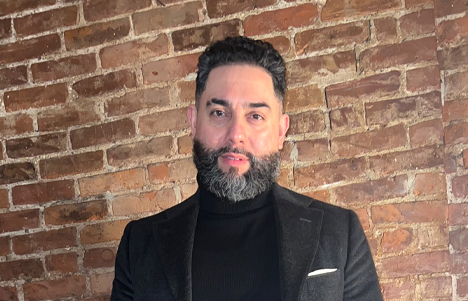
Snkr Joe is well known for his contributions as a pioneer in the online sneaker community and as a founder of one of the best all-vinyl, all-45 parties, Mobile Mondays. His passion for DJing dates back to 1992 when he studied the art of mixing records. What started out as a hobby is now a full-time profession as an open-format DJ playing at New York City’s hottest speakeasies, hotels, lounges, restaurants, and bars, such as Nothing Really Matters, Not A Speakeasy, The UES (Ice-Cream Shoppe speakeasy), The Back Room, Mr. Purple (Hotel Indigo), Nina’s x Liquid Lab (NoMo SoHo hotel), and Buddha-Bar Restaurant.
“Setting the vibe for a room that makes people smile, dance, and laugh is rewarding to me. All of these reactions tell me that I have done my job.”
Lead support for the Rubin Museum is provided by Bob and Lois Baylis, Barbara Bowman, E. Rhodes and Leona B. Carpenter Foundation, Dharma Joy Foundation, Noah P. Dorsky, Fred Eychaner, Christopher J. Fussner, Agnes Gund, The Robert H. N. Ho Family Foundation Global, the Estate of Lisina M. Hoch, Henry Luce Foundation, The Pierre and Tana Matisse Foundation, Mellon Foundation, Matt and Ann Nimetz, The Randleigh Foundation Trust, Shelley and Donald Rubin, Tiger Baron Foundation, and Ellen Bayard Weedon Foundation.
General operating support of the Rubin Museum of Art is provided by the Milton and Sally Avery Arts Foundation, Alex J. Ettl Foundation, Daphne Hoch Cunningham and John Cunningham, Anne E. Delaney, Dalio Philanthropies, Dan Gimbel of NEPC, LLC, The Prospect Hill Foundation, Basha Frost Rubin and Scott Grinsell, Namita and Arun Saraf, Linda Schejola, Eric and Alexandra Schoenberg, Eileen Caulfield Schwab, Jesse Smith and Annice Kenan, Tsherin Sherpa, Tong-Tong Zhu and Jianing Liu, with generous donations from the Museum’s Board of Trustees, individual donors and members, and corporate and foundation supporters.
This program is supported, in part, by public funds from the New York City Department of Cultural Affairs, in partnership with the City Council.
The Rubin Museum’s programs are made possible by the New York State Council on the Arts with the support of the Office of Governor Kathy Hochul and the New York State Legislature.


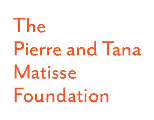

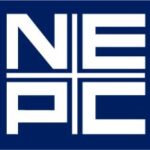
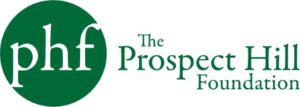


Photo by Filip Wolak
Cocktails, art, and music make a heady mix during K2 Friday Nights, where admission is free every Friday from 6:00 to 10:00 PM.
- Café Serai becomes the K2 Lounge, offering a drink menu to accompany the evening’s DJ, Gigi Gray.
- Arrive early for 2-for-1 drinks from 6:00 to 7:00 PM.
- Explore all the galleries, dive deeper with an exhibition tour at 7:15 PM, and kick off your weekend with the Rubin.
Coming with friends? Learn about group reservations and tours.
About the DJ
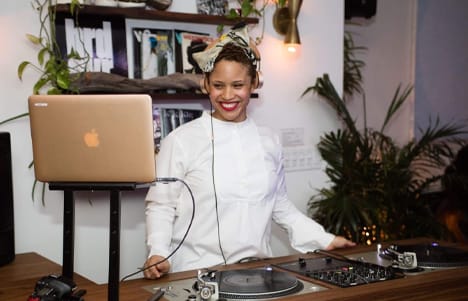
A Seattle native with a New York spirit, Gigi Gray blends R&B, soul, funk, reggae, and pop. The DJ, writer, world traveler, and fashion enthusiast is a woman who goes after her dreams and hopes to leave her crowds a little happier than when they first arrived. Prepare to feel good and take a trip down memory lane with Gigi and her sound selection.
Lead support for the Rubin Museum is provided by Bob and Lois Baylis, Barbara Bowman, E. Rhodes and Leona B. Carpenter Foundation, Dharma Joy Foundation, Noah P. Dorsky, Fred Eychaner, Christopher J. Fussner, Agnes Gund, The Robert H. N. Ho Family Foundation Global, the Estate of Lisina M. Hoch, Henry Luce Foundation, The Pierre and Tana Matisse Foundation, Mellon Foundation, Matt and Ann Nimetz, The Randleigh Foundation Trust, Shelley and Donald Rubin, Tiger Baron Foundation, and Ellen Bayard Weedon Foundation.
General operating support of the Rubin Museum of Art is provided by the Milton and Sally Avery Arts Foundation, Alex J. Ettl Foundation, Daphne Hoch Cunningham and John Cunningham, Anne E. Delaney, Dalio Philanthropies, Dan Gimbel of NEPC, LLC, The Prospect Hill Foundation, Basha Frost Rubin and Scott Grinsell, Namita and Arun Saraf, Linda Schejola, Eric and Alexandra Schoenberg, Eileen Caulfield Schwab, Jesse Smith and Annice Kenan, Tsherin Sherpa, Tong-Tong Zhu and Jianing Liu, with generous donations from the Museum’s Board of Trustees, individual donors and members, and corporate and foundation supporters.
This program is supported, in part, by public funds from the New York City Department of Cultural Affairs, in partnership with the City Council.
The Rubin Museum’s programs are made possible by the New York State Council on the Arts with the support of the Office of Governor Kathy Hochul and the New York State Legislature.








Photo by Filip Wolak
Cocktails, art, and music make a heady mix during K2 Friday Nights, where admission is free every Friday from 6:00 to 10:00 PM.
- Café Serai becomes the K2 Lounge, offering a special drink menu to accompany the evening’s DJ, Joey Greiner.
- Arrive early for 2-for-1 drinks from 6:00 to 7:00 PM.
- Explore all the galleries, dive deeper with an exhibition tour at 7:15 PM, and kick off your weekend with the Rubin.
Coming with friends? Learn about group reservations and tours.
About the DJ
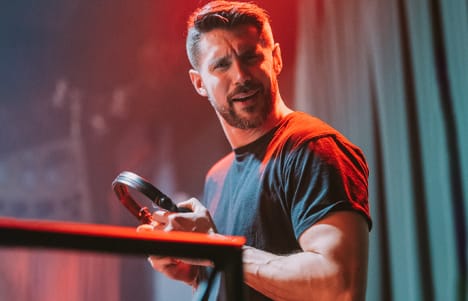
Joey Greiner has been moving dance floors for over 15 years in his native New York City, across the US, and Europe. He weaves deep and funky grooves with Afro and Latin rhythms to lead you on a journey into your most primal instincts to move your body. His wildly popular Tribal Disco party infuses live instruments and performances with energetic DJ sets, creating an unforgettable interactive experience for the crowd.
Lead support for the Rubin Museum is provided by Bob and Lois Baylis, Barbara Bowman, E. Rhodes and Leona B. Carpenter Foundation, Dharma Joy Foundation, Noah P. Dorsky, Fred Eychaner, Christopher J. Fussner, Agnes Gund, The Robert H. N. Ho Family Foundation Global, the Estate of Lisina M. Hoch, Henry Luce Foundation, The Pierre and Tana Matisse Foundation, Mellon Foundation, Matt and Ann Nimetz, The Randleigh Foundation Trust, Shelley and Donald Rubin, Tiger Baron Foundation, and Ellen Bayard Weedon Foundation.
General operating support of the Rubin Museum of Art is provided by the Milton and Sally Avery Arts Foundation, Alex J. Ettl Foundation, Daphne Hoch Cunningham and John Cunningham, Anne E. Delaney, Dalio Philanthropies, Dan Gimbel of NEPC, LLC, The Prospect Hill Foundation, Basha Frost Rubin and Scott Grinsell, Namita and Arun Saraf, Linda Schejola, Eric and Alexandra Schoenberg, Eileen Caulfield Schwab, Jesse Smith and Annice Kenan, Tsherin Sherpa, Tong-Tong Zhu and Jianing Liu, with generous donations from the Museum’s Board of Trustees, individual donors and members, and corporate and foundation supporters.
This program is supported, in part, by public funds from the New York City Department of Cultural Affairs, in partnership with the City Council.
The Rubin Museum’s programs are made possible by the New York State Council on the Arts with the support of the Office of Governor Kathy Hochul and the New York State Legislature.








Photo by Filip Wolak
The Rubin is participating in West Side Fest, a free weekend-long, multisite celebration bringing together the best of arts and culture on Manhattan’s west side. Enjoy free admission at the Rubin all day, as well as afternoon tours.
Join us for a free tour of our galleries at 3:00 PM! Experienced guides lead you through the Rubin’s Reimagine: Himalayan Art Now exhibition, highlighting specific artworks so that you can dive deeper. Tours meet in the lobby once you enter the Museum and last approximately 30 minutes.
For more details on West Side Fest, including the full schedule, visit westsidefest.nyc.
Lead support for the Rubin Museum is provided by Bob and Lois Baylis, Barbara Bowman, E. Rhodes and Leona B. Carpenter Foundation, Dharma Joy Foundation, Noah P. Dorsky, Fred Eychaner, Christopher J. Fussner, Agnes Gund, The Robert H. N. Ho Family Foundation Global, the Estate of Lisina M. Hoch, Lilly Endowment, Henry Luce Foundation, The Pierre and Tana Matisse Foundation, Mellon Foundation, Matt and Ann Nimetz, The Randleigh Foundation Trust, Shelley and Donald Rubin, Tiger Baron Foundation, and Ellen Bayard Weedon Foundation.
General operating support of the Rubin Museum of Art is provided by the Milton and Sally Avery Arts Foundation, Daphne Hoch Cunningham and John Cunningham, Anne E. Delaney, Dalio Philanthropies, Janet Gardner, Dan Gimbel of NEPC, LLC, The Prospect Hill Foundation, Basha Rubin and Scott Grinsell, Linda Schejola, Eric and Alexandra Schoenberg, Eileen Caulfield Schwab, Jesse Smith and Annice Kenan, Tsherin Sherpa, Tong-Tong Zhu and Jianing Liu, with generous donations from the Museum’s Board of Trustees, individual donors and members, and corporate and foundation supporters.
This program is supported, in part, by public funds from the New York City Department of Cultural Affairs, in partnership with the City Council.
The Rubin Museum’s programs are made possible by the New York State Council on the Arts with the support of the Office of Governor Kathy Hochul and the New York State Legislature.




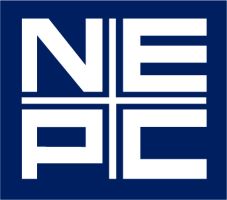
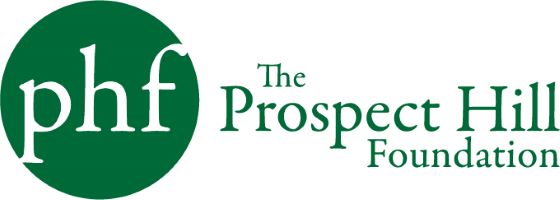


Image
Photo by Filip Wolak, 2023
Explore Himalayan art and cultures during this engaging tour led by an expert docent. Through close looking at art and conversation, visitors gain greater insights into current exhibitions and the Rubin collection. Tour themes may include Mindfulness, Living Traditions, Stories of Migration, the Role of the Female, Tradition and Technology, and Environmental Sustainability, among others.
Tours meet at 2:00 PM at the base of the spiral staircase and last approximately 45 minutes. Browse our exhibitions to plan your next visit.
Lead support for the Rubin Museum is provided by Bob and Lois Baylis, Barbara Bowman, E. Rhodes and Leona B. Carpenter Foundation, Dharma Joy Foundation, Noah P. Dorsky, Fred Eychaner, Christopher J. Fussner, Agnes Gund, The Robert H. N. Ho Family Foundation Global, the Estate of Lisina M. Hoch, Lilly Endowment, Henry Luce Foundation, The Pierre and Tana Matisse Foundation, Mellon Foundation, Matt and Ann Nimetz, The Randleigh Foundation Trust, Shelley and Donald Rubin, Tiger Baron Foundation, and Ellen Bayard Weedon Foundation.
General operating support of the Rubin Museum of Art is provided by the Milton and Sally Avery Arts Foundation, Daphne Hoch Cunningham and John Cunningham, Anne E. Delaney, Dalio Philanthropies, Janet Gardner, Dan Gimbel of NEPC, LLC, The Prospect Hill Foundation, Basha Rubin and Scott Grinsell, Linda Schejola, Eric and Alexandra Schoenberg, Eileen Caulfield Schwab, Jesse Smith and Annice Kenan, Tsherin Sherpa, Tong-Tong Zhu and Jianing Liu, with generous donations from the Museum’s Board of Trustees, individual donors and members, and corporate and foundation supporters.
This program is supported, in part, by public funds from the New York City Department of Cultural Affairs, in partnership with the City Council.
The Rubin Museum’s programs are made possible by the New York State Council on the Arts with the support of the Office of Governor Kathy Hochul and the New York State Legislature.








Image
Photo by Filip Wolak, 2023
Explore Himalayan art and cultures during this engaging tour led by an expert docent. Through close looking at art and conversation, visitors gain greater insights into current exhibitions and the Rubin collection. Tour themes may include Mindfulness, Living Traditions, Stories of Migration, the Role of the Female, Tradition and Technology, and Environmental Sustainability, among others.
Tours meet at 2:00 PM at the base of the spiral staircase and last approximately 45 minutes. Browse our exhibitions to plan your next visit.
Lead support for the Rubin Museum is provided by Bob and Lois Baylis, Barbara Bowman, E. Rhodes and Leona B. Carpenter Foundation, Dharma Joy Foundation, Noah P. Dorsky, Fred Eychaner, Christopher J. Fussner, Agnes Gund, The Robert H. N. Ho Family Foundation Global, the Estate of Lisina M. Hoch, Lilly Endowment, Henry Luce Foundation, The Pierre and Tana Matisse Foundation, Mellon Foundation, Matt and Ann Nimetz, The Randleigh Foundation Trust, Shelley and Donald Rubin, Tiger Baron Foundation, and Ellen Bayard Weedon Foundation.
General operating support of the Rubin Museum of Art is provided by the Milton and Sally Avery Arts Foundation, Daphne Hoch Cunningham and John Cunningham, Anne E. Delaney, Dalio Philanthropies, Janet Gardner, Dan Gimbel of NEPC, LLC, The Prospect Hill Foundation, Basha Rubin and Scott Grinsell, Linda Schejola, Eric and Alexandra Schoenberg, Eileen Caulfield Schwab, Jesse Smith and Annice Kenan, Tsherin Sherpa, Tong-Tong Zhu and Jianing Liu, with generous donations from the Museum’s Board of Trustees, individual donors and members, and corporate and foundation supporters.
This program is supported, in part, by public funds from the New York City Department of Cultural Affairs, in partnership with the City Council.
The Rubin Museum’s programs are made possible by the New York State Council on the Arts with the support of the Office of Governor Kathy Hochul and the New York State Legislature.








Image
Photo by Filip Wolak, 2023
The Rubin is participating in West Side Fest, a free weekend-long, multisite celebration bringing together the best of arts and culture on Manhattan’s west side. Enjoy free admission at the Rubin all day, as well as afternoon tours.
Join us for a free tour of our galleries at 2:00 PM! Experienced guides lead you through the Rubin’s Reimagine: Himalayan Art Now exhibition, highlighting specific artworks so that you can dive deeper. Tours meet in the lobby once you enter the Museum and last approximately 30 minutes.
For more details on West Side Fest, including the full schedule, visit westsidefest.nyc.
Lead support for the Rubin Museum is provided by Bob and Lois Baylis, Barbara Bowman, E. Rhodes and Leona B. Carpenter Foundation, Dharma Joy Foundation, Noah P. Dorsky, Fred Eychaner, Christopher J. Fussner, Agnes Gund, The Robert H. N. Ho Family Foundation Global, the Estate of Lisina M. Hoch, Lilly Endowment, Henry Luce Foundation, The Pierre and Tana Matisse Foundation, Mellon Foundation, Matt and Ann Nimetz, The Randleigh Foundation Trust, Shelley and Donald Rubin, Tiger Baron Foundation, and Ellen Bayard Weedon Foundation.
General operating support of the Rubin Museum of Art is provided by the Milton and Sally Avery Arts Foundation, Daphne Hoch Cunningham and John Cunningham, Anne E. Delaney, Dalio Philanthropies, Janet Gardner, Dan Gimbel of NEPC, LLC, The Prospect Hill Foundation, Basha Rubin and Scott Grinsell, Linda Schejola, Eric and Alexandra Schoenberg, Eileen Caulfield Schwab, Jesse Smith and Annice Kenan, Tsherin Sherpa, Tong-Tong Zhu and Jianing Liu, with generous donations from the Museum’s Board of Trustees, individual donors and members, and corporate and foundation supporters.
This program is supported, in part, by public funds from the New York City Department of Cultural Affairs, in partnership with the City Council.
The Rubin Museum’s programs are made possible by the New York State Council on the Arts with the support of the Office of Governor Kathy Hochul and the New York State Legislature.








Image
Photo by Filip Wolak, 2023
There will be no guided public tour on Saturday, July 6. Saturday public tours will resume on Saturday, July 13.
Lead support for the Rubin Museum is provided by Bob and Lois Baylis, Barbara Bowman, E. Rhodes and Leona B. Carpenter Foundation, Dharma Joy Foundation, Noah P. Dorsky, Fred Eychaner, Christopher J. Fussner, Agnes Gund, The Robert H. N. Ho Family Foundation Global, the Estate of Lisina M. Hoch, Lilly Endowment, Henry Luce Foundation, The Pierre and Tana Matisse Foundation, Mellon Foundation, Matt and Ann Nimetz, The Randleigh Foundation Trust, Shelley and Donald Rubin, Tiger Baron Foundation, and Ellen Bayard Weedon Foundation.
General operating support of the Rubin Museum of Art is provided by the Milton and Sally Avery Arts Foundation, Daphne Hoch Cunningham and John Cunningham, Anne E. Delaney, Dalio Philanthropies, Janet Gardner, Dan Gimbel of NEPC, LLC, The Prospect Hill Foundation, Basha Rubin and Scott Grinsell, Linda Schejola, Eric and Alexandra Schoenberg, Eileen Caulfield Schwab, Jesse Smith and Annice Kenan, Tsherin Sherpa, Tong-Tong Zhu and Jianing Liu, with generous donations from the Museum’s Board of Trustees, individual donors and members, and corporate and foundation supporters.
This program is supported, in part, by public funds from the New York City Department of Cultural Affairs, in partnership with the City Council.
The Rubin Museum’s programs are made possible by the New York State Council on the Arts with the support of the Office of Governor Kathy Hochul and the New York State Legislature.








Image
Photo by Filip Wolak, 2023
There will be no guided public tour on Sunday, June 30 and Sunday, July 7. Sunday public tours will resume on Sunday, July 14.
Lead support for the Rubin Museum is provided by Bob and Lois Baylis, Barbara Bowman, E. Rhodes and Leona B. Carpenter Foundation, Dharma Joy Foundation, Noah P. Dorsky, Fred Eychaner, Christopher J. Fussner, Agnes Gund, The Robert H. N. Ho Family Foundation Global, the Estate of Lisina M. Hoch, Lilly Endowment, Henry Luce Foundation, The Pierre and Tana Matisse Foundation, Mellon Foundation, Matt and Ann Nimetz, The Randleigh Foundation Trust, Shelley and Donald Rubin, Tiger Baron Foundation, and Ellen Bayard Weedon Foundation.
General operating support of the Rubin Museum of Art is provided by the Milton and Sally Avery Arts Foundation, Daphne Hoch Cunningham and John Cunningham, Anne E. Delaney, Dalio Philanthropies, Janet Gardner, Dan Gimbel of NEPC, LLC, The Prospect Hill Foundation, Basha Rubin and Scott Grinsell, Linda Schejola, Eric and Alexandra Schoenberg, Eileen Caulfield Schwab, Jesse Smith and Annice Kenan, Tsherin Sherpa, Tong-Tong Zhu and Jianing Liu, with generous donations from the Museum’s Board of Trustees, individual donors and members, and corporate and foundation supporters.
This program is supported, in part, by public funds from the New York City Department of Cultural Affairs, in partnership with the City Council.
The Rubin Museum’s programs are made possible by the New York State Council on the Arts with the support of the Office of Governor Kathy Hochul and the New York State Legislature.








Image
Photo by Filip Wolak, 2024
Songwriter and author Amanda Palmer curates and hosts three exchanges around what happens when significant, and sometimes unexpected, life events lead to opportunities for personal transformation. Life after… COVID, after… wellness, after… telling the truth on yourself will constitute some of the topics explored on Friday evenings in November with her guests: artist Gonkar Gyatso (November 3), eco-writer Sophie Strand (November 10), and activist Noor Tagouri (November 17).
Who are we after we experience a catastrophic life event? Who are we after we fall in and out of love? Who are we after we change jobs? Who are we after we almost die, but make it out alive? Amanda and each of her guests are not afraid of these big questions. In Amanda’s words, “Perhaps we’ll find some answers, but more likely, we’ll all feel less alone and make one another laugh.”
In this second conversation, Amanda speaks with eco-writer Sophie Strand about Life After… Wellness.
Join us before the event at 6:15 PM for a docent-led exhibition tour of Death Is Not the End.
About the Speakers
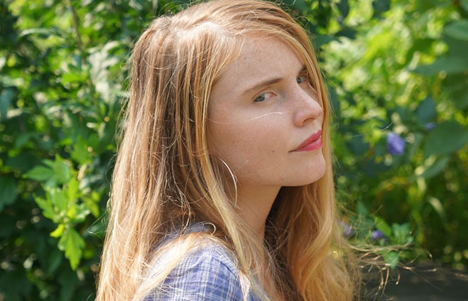
Sophie Strand is a writer based in the Hudson Valley who focuses on the intersection of spirituality, storytelling, and ecology. She is the author of The Flowering Wand, The Madonna Secret, and a forthcoming memoir on disability and ecology, The Body is a Doorway. Subscribe for her newsletter at sophiestrand.substack.com. And follow her work on Instagram @cosmogyny and at www.sophiestrand.com.
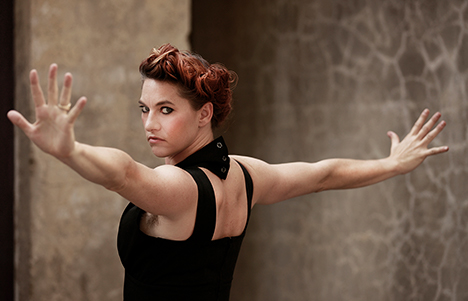
Amanda Palmer is a best-selling author, feminist, songwriter, community leader, pianist, and ukulele-enthusiast who simultaneously embraces and explodes traditional frameworks of music, theater, and art. She first came to prominence as part of the punk cabaret duo The Dresden Dolls, earning global applause for their inventive songcraft and wide-ranging theatricality. Her solo career featured such groundbreaking works as the crowd-funded Theatre Is Evil, which made a top 10 debut on the Billboard 200 in 2012 and remains the top-funded original music project on Kickstarter. In 2013, she presented “The Art of Asking” at the annual TED conference, which has been viewed over 20 million times worldwide. Palmer expanded her philosophy into the New York Times best-selling memoir, The Art of Asking: How I Learned To Stop Worrying And Let People Help. Since 2015, Palmer has used the patronage platform Patreon to fund her artwork with an average of 15,000 patrons micro-supporting her creations each month. In 2019, Palmer released her solo album, There Will Be No Intermission. Her first appearance at the Rubin was with neuroscientist David Eagleman on the subject of Finding Time. She can also be heard on Season 1 of the Rubin’s AWAKEN podcast.
Death Is Not the End is supported by the E. Rhodes and Leona B. Carpenter Foundation, Ellen Bayard Weedon Foundation, Robert Lehman Foundation, and The Prospect Hill Foundation.
The Rubin Museum’s programs are made possible by the New York State Council on the Arts with the support of the Office of Governor Kathy Hochul and the New York State Legislature.
Death Is Not the End is supported in part by the National Endowment for the Arts.
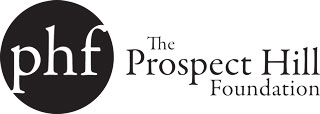

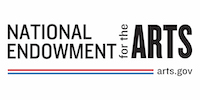
Songwriter and author Amanda Palmer curates and hosts three exchanges around what happens when significant, and sometimes unexpected, life events lead to opportunities for personal transformation. Life after… COVID, after… wellness, after… telling the truth on yourself will constitute some of the topics explored on Friday evenings in November with her guests: artist Gonkar Gyatso (November 3), eco-writer Sophie Strand (November 10), and activist Noor Tagouri (November 17).Who are we after we experience a catastrophic life event? Who are we after we fall in and out of love? Who are we after we change jobs? Who are we after we almost die, but make it out alive? Amanda and each of her guests are not afraid of these big questions. In Amanda’s words, “Perhaps we’ll find some answers, but more likely, we’ll all feel less alone and make one another laugh.”
In this final conversation, Amanda speaks with activist Noor Tagouri about Life After… Telling The Truth on Yourself.
Join us before the event at 6:15 PM for a docent-led exhibition tour of Death Is Not the End.
About the Speakers

Noor Tagouri is a formidable force in the world of journalism and storytelling. Her groundbreaking 2018 documentary, Sold In America, delved deep into the complexities of the US sex trade, earning her a prestigious Gracie Award for Best Investigative Series.
In 2022, Noor launched the Webby-nominated investigative series REP: A Story About the Stories We Tell, which explores the concepts of representation and objectivity in media. With a finger on the pulse of her communities’ concerns, Noor Tagouri continues to transform media, making it more inclusive, representative, and soulful than ever before.

Amanda Palmer is a best-selling author, feminist, songwriter, community leader, pianist, and ukulele-enthusiast who simultaneously embraces and explodes traditional frameworks of music, theater, and art. She first came to prominence as part of the punk cabaret duo The Dresden Dolls, earning global applause for their inventive songcraft and wide-ranging theatricality. Her solo career featured such groundbreaking works as the crowd-funded Theatre Is Evil, which made a top 10 debut on the Billboard 200 in 2012 and remains the top-funded original music project on Kickstarter. In 2013, she presented “The Art of Asking” at the annual TED conference, which has been viewed over 20 million times worldwide. Palmer expanded her philosophy into the New York Times best-selling memoir, The Art of Asking: How I Learned To Stop Worrying And Let People Help. Since 2015, Palmer has used the patronage platform Patreon to fund her artwork with an average of 15,000 patrons micro-supporting her creations each month. In 2019, Palmer released her solo album, There Will Be No Intermission. Her first appearance at the Rubin was with neuroscientist David Eagleman on the subject of Finding Time. She can also be heard on Season 1 of the Rubin’s AWAKEN podcast.
Death Is Not the End is supported by the E. Rhodes and Leona B. Carpenter Foundation, Ellen Bayard Weedon Foundation, Robert Lehman Foundation, and The Prospect Hill Foundation.
The Rubin Museum’s programs are made possible by the New York State Council on the Arts with the support of the Office of Governor Kathy Hochul and the New York State Legislature.
Death Is Not the End is supported in part by the National Endowment for the Arts.



Join Tibetan medicine doctor Kunga Wangdue for a free online tour of Healing Practices: Stories from Himalayan Americans, on view through January 16, 2023. Through close looking and conversation, learn more about the featured exhibition and the variety of ways individuals employ healing in their day to day lives. Dr. Wangdue will also discuss the importance of diet in Tibetan medicine for the healing process. This tour will last approximately 60 minutes.
Tibetan medicine doctor Kunga Wangdue was born in Tibet and began his Buddhist studies at the age of eight and studied Tibetan language and Buddhist philosophy at Drepung Monastery in Lhasa. Doctor Wangdue then began his extensive study of Tibetan medicine and graduated from Tibetan Medical and Astrology College in India in 1996. He had the privilege of completing a year-long apprenticeship under Senior Menpa Kunga Gyurme, former personal physician of His Holiness the Dalai Lama. From 1998 to 2002, he served as a clinical practitioner in Nepal. Dr. Wangdue, the head of the Kungye Healing Center in New York, is a highly respected Tibetan medicine practitioner in the Tibetan Himalayan community of New York.
Major support for Healing Practices: Stories from Himalayan Americans is provided by The Prospect Hill Foundation as well as by generous donations from the Museum’s Board of Trustees, individual donors, and members.
Public support of the Rubin Museum of Art is provided by the New York State Council on the Arts with the support of the Office of the Governor and the New York State Legislature.


Join this interactive workshop and open forum on culture programming for and with people living with dementia, led by Assistant Manager of Docents & Access Programs Maggie Woolums and Teaching Artist and Creative Aging Advocate Magda Kaczmarska. You will learn about the partnership between the Rubin’s long running program Mindful Connections and Stories in the Moment, an evidence-informed program that combines dance, movement, and storytelling. Experience a demonstration from a portion of this recent multi-sensory program series, hear findings and reflections from participants in the series, and participate in open discussion with other museum access professionals and teaching artists about how multidisciplinary collaborations can extend the field of access programming.
About the teachers
Magda Kaczmarska is a teaching artist and creative-aging advocate based in New York City. She received her MFA in dance performance and choreography and her BS in biochemistry and molecular biophysics from the University of Arizona. She spent ten years working in neuropharmacology research and over 15 years in community-based education settings in dance and creative expression for persons of all ages, specifically older adults. She serves on the National Dance Education Organization (NDEO) Dance and Disability Special Interest Group, supporting access, equity, and inclusion in the dance education community. Magda is an Atlantic Fellow for Equity in Brain Health at GBHI, where she is working to design and expand access to creative aging programs that support brain health across the lifespan.
Maggie Woolums is the Assistant Manager of Docent & Access Programs at the Rubin Museum of Art. In this position, she oversees the Museum’s Accessibility initiatives, specifically Mindful Connections, a monthly program for adults living with dementia and their caregivers, as well as regularly scheduled programs for caregivers and senior audiences. Program themes rotate and frequently highlight current museum exhibitions. They feature staff, specially trained teaching artists, and performers that offer audiences the opportunity to interact with art through a variety of mediums. Maggie has been at the Rubin Museum for 6 years, previously as the Assistant Manager for Box Office and Group Visits in the Public Programs department. She holds bachelor’s and master’s degrees from the Manhattan School of Music and previously worked with senior audiences during her term as Music Director of Uptown Voices, an outreach group serving hospitals and senior residences in the New York City and Long Island area.


Mindful Connections is supported by the Mellon Foundation and The Robert H. N. Ho Family Foundation.
Are you someone who loves getting creative? These drop-in sessions are for you. Creative expression has been cited as a powerful way to connect with yourself, alleviate stress, and find inspiration.
In this collaboration with New York University Steinhardt Graduate School of Art Therapy, graduate art therapy students guide visitors in creative art-making exercises designed to encourage self-reflection and discovery. Presented in conjunction with the exhibition Healing Practices: Stories from Himalayan Americans, audiences have the opportunity to reflect on themes of healing and well-being explored within the show.
Advanced registration is not required. This offering is included as part of your general admission ticket for the galleries. Visit the 6th floor between 1 and 3 PM on Saturdays through May 28 to participate.
Healing Through Art sessions are under the direction of Healing Practices: Stories from Himalayan Americans Community Advisory Group member Ikuko Acosta and inspired by the themes in the show.
About the teacher
Ikuko Acosta, PhD, ATR-BC, LCAT
Director of the Graduate Art Therapy Program, New York University
About the Rubin Museum Advisory Council member
Ikuko has been involved in the field of art therapy for the past 37 years as an art therapist and art theory educator. Her clinical expertise is with the adult psychiatric population; she worked with a diagnostic team in the admissions unit in a county psychiatric hospital in New Jersey. Her main research interest is developing an aesthetically based pictorial analysis within a framework of psychodynamic approach.
Ikuko has been active in promoting cross-cultural application of art therapy worldwide, and has been presenting and teaching in more than 20 countries over the past 25 years.
Ikuko’s most recent funded research, a collaboration with the Parkinson’s unit at NYU Langone Medical Center, focused on the impact of creative experience on people with Parkinson’s disease.
Support for Healing Practices: Stories from Himalayan Americans is provided by The Prospect Hill Foundation. General operating support of the Rubin Museum of Art is provided by the New York State Council on the Arts with the support of Office of the Governor and the New York State Legislature, as well as by generous donations from the Museum’s Board of Trustees, individual donors, and members.


Are you someone who loves getting creative? These drop-in sessions are for you. Creative expression has been cited as a powerful way to connect with yourself, alleviate stress, and find inspiration.
In this collaboration with New York University Steinhardt Graduate School of Art Therapy, graduate art therapy students guide visitors in creative art-making exercises designed to encourage self-reflection and discovery. Presented in conjunction with the exhibition Healing Practices: Stories from Himalayan Americans, audiences have the opportunity to reflect on themes of healing and well-being explored within the show.
Advanced registration is not required. This offering is included as part of your general admission ticket for the galleries. Visit the 6th floor between 1 and 3 PM on Saturdays through May 28 to participate.
Healing Through Art sessions are under the direction of Healing Practices: Stories from Himalayan Americans Community Advisory Group member Ikuko Acosta and inspired by the themes in the show.
About the teacher
Ikuko Acosta, PhD, ATR-BC, LCAT
Director of the Graduate Art Therapy Program, New York University
Ikuko has been involved in the field of art therapy for the past 37 years as an art therapist and art theory educator. Her clinical expertise is with the adult psychiatric population; she worked with a diagnostic team in the admissions unit in a county psychiatric hospital in New Jersey. Her main research interest is developing an aesthetically based pictorial analysis within a framework of psychodynamic approach.
Ikuko has been active in promoting cross-cultural application of art therapy worldwide, and has been presenting and teaching in more than 20 countries over the past 25 years.
Ikuko’s most recent funded research, a collaboration with the Parkinson’s unit at NYU Langone Medical Center, focused on the impact of creative experience on people with Parkinson’s disease.
Support for Healing Practices: Stories from Himalayan Americans is provided by The Prospect Hill Foundation. General operating support of the Rubin Museum of Art is provided by the New York State Council on the Arts with the support of Office of the Governor and the New York State Legislature, as well as by generous donations from the Museum’s Board of Trustees, individual donors, and members.


Celebrate the springtime Telugu festival, Ugadi, with the Rubin Museum’s New York City”“based community partner Telugu Literary and Cultural Association, which represents the largest Telugu-speaking population in the world outside of India.
Ugadi, or Yugadi, is celebrated as the first day of the New Year by people in Andhra Pradesh, Telangana, and Karnataka, as well as Telugu-speaking communities all over the world. On this day, people make a special chutney called Ugadi Pachadi, with each family putting its own unique spin on the recipe.
Traditionally, each family member consumes a teaspoon of Ugadi Pachadi, which features six symbolic flavors (sweet, sour, salty, bitter, astringent, and spicy) that represent the upcoming experiences and emotions of the New Year.
This afternoon event includes an invocation, group classical dance, and live, interactive preparation of the chutney. Register in advance to receive a list of ingredients to make the chutney from home along with us.
This program is hosted by Tashi Chodron, Himalayan Cultural Programs and Partnerships, Rubin Museum of Art, and followed by a Q&A.
You can participate and prepare the Ugadi Pachadi during the program! Download the recipe.
Telugu Literary and Cultural Association (TLCA) is a nonprofit organization and the first Telugu association to be established in North America. Founded in 1971, the organization is home to Telugu-speaking Indians who originate from the South Indian states of Andhra Pradesh and Telangana. The United States has the highest Telugu population in the world outside of India at approximately half a million people.
TLCA’s mission is to preserve the Telugu culture and its linguistic heritage for current and future generations of Telugu people.
Members take pride in the community developed by TLCA, which allows them to celebrate the Telugu language and its rich traditions while contributing to their children’s social and emotional development.

Celebrate Diwali or Deepavali, the festival of lights, with the Rubin Museum, India Home, and the Telugu Literary and Cultural Association and bring light to these challenging times. This virtual gathering features opening music from Neil and Maitreya Padukone, a father-son duo who play guitar, sitar, and tabla in the Indo-Latin fusion band Salsa Masala, and recipients of awards from the Queens Council on the Arts and The Shed. India Home seniors and Telugu Literary and Cultural Association will showcase their talent, and community members will share Diwali song and dance, including the traditional folk dance form of Garba. During the themed live drawing class attendees can participate from home, and they will also learn how to create Rangoli flower designs.
An official holiday in India, Sri Lanka, Nepal, and other countries, Diwali symbolizes the spiritual victory of light over darkness, good over evil, and knowledge over ignorance. Join us in a celebration of life and light!
This program is hosted by Tashi Chodron, Himalayan Cultural Programs and Partnerships, Rubin Museum of Art, and followed by a Q&A.
About the Presenters
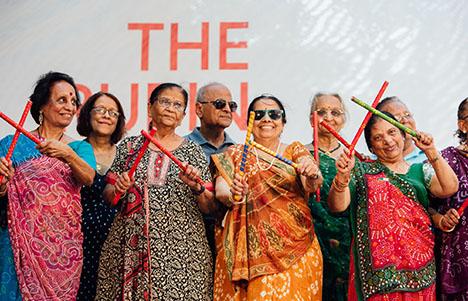
India Home is a nonprofit organization dedicated to addressing the needs of the Indian and larger South Asian senior citizen immigrant community. Started in 2007 by a group of healthcare professionals, India Home provides social, psychological, recreational, and spiritual services in a culturally sensitive environment.

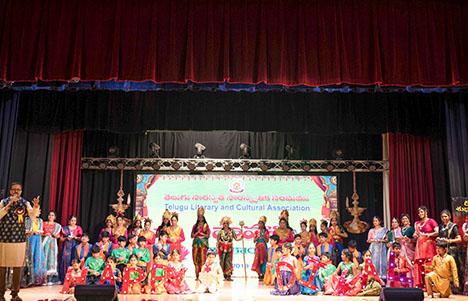
Telugu Literary and Cultural Association is a nonprofit organization and the first Telugu association to be established in North America. Founded in 1971, the organization is home to Telugu-speaking Indians who originate from the South Indian states of Andhra Pradesh and Telangana. The United States has the highest Telugu population in the world outside of India, with approximately half a million people. TLCA’s mission is to preserve Telugu culture and its linguistic heritage for current and future generations. Members celebrate the Telugu language and its rich traditions while creating positive influences on their children’s social and emotional development.
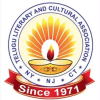
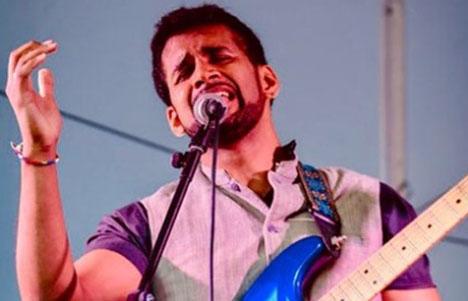
Neil Padukone is a guitarist who blends jazz, funk, flamenco, rock, Indian, and Latin music into his work. He composes music and plays guitar, sitar, and oud in Salsa Masala, an award-winning Indo-Latin fusion band. He is the recipient of the inaugural Queens Council on the Arts Artist Commissioning Program award, which he used to present A Jackson Heights Block Party in the streets of the Queens neighborhood that inspired his Indian-Latin project in 2018. He also received the first Open Call award from The Shed and was one of the first musical acts to perform at the newest art space on Manhattan’s westside. He played lead guitar in Mugwump, a funk-jazz band he co-founded, whose self-titled album was recognized in the Village Voice and Time Out NY. Padukone also wrote and performed with his father, Maitreya, the score for The Passion of Noor Inayat Khan, a play about an Indian Sufi woman who served as a spy for the French resistance. In addition to training in jazz, Neil has studied flamenco, North Indian classical, and Latin music, and he also plays bouzouki, ukulele, and dhol.
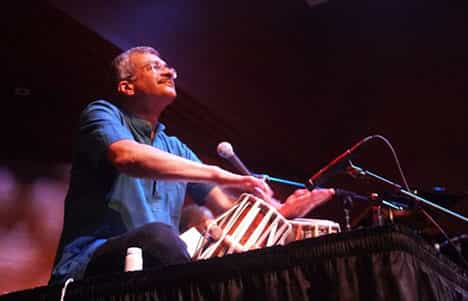
Maitreya Padukone was inspired and initiated into the art of tabla by Pandit Nikhil Ghosh. He plays tabla in Salsa Masala, an award-winning Indo-Latin fusion band. Maitreya has accompanied Indian musicians like Steve Gorn, Ustad Sultan Khan, and Dr. Rajiv Taranath, among many others. He is co-founder of Raga Music Circle, which has organized Indian music concerts for the last 15 years. He co-wrote the score for The Passion of Noor Inayat Khan with his son. He is also a dental consultant to Jazz Foundation of America and provides pro bono dental treatment to struggling musicians. His recent collaboration with Cosmasomatics resulted in the album Jazz Maalika, a fusion of music inspired by John Coltrane and Pandit Ravi Shankar produced on his label, Saptakjazz.
Himalayan Heritage programs are supported by Heather Beth Henson.
